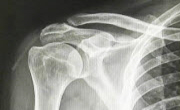본 연구는 책자를 이용한 인지 행동적 자가 치료를 개발하여, 인지 행동적 자가 치료가 완경기 여성의 증상 개선 및 태도 변화에도 효과가 있는지 살펴보고자 하였다. 본 연구의 참가자는 완...
http://chineseinput.net/에서 pinyin(병음)방식으로 중국어를 변환할 수 있습니다.
변환된 중국어를 복사하여 사용하시면 됩니다.
- 中文 을 입력하시려면 zhongwen을 입력하시고 space를누르시면됩니다.
- 北京 을 입력하시려면 beijing을 입력하시고 space를 누르시면 됩니다.
완경기 직장인 여성을 대상으로 한 인지 행동적 자가 치료의 효과 = Efficacy of self-help cognitive bebavioral therapy for working women with menopausal symptoms
한글로보기부가정보
국문 초록 (Abstract)
본 연구는 책자를 이용한 인지 행동적 자가 치료를 개발하여, 인지 행동적 자가 치료가 완경기 여성의 증상 개선 및 태도 변화에도 효과가 있는지 살펴보고자 하였다. 본 연구의 참가자는 완경 증상의 네 가지 하위 영역(혈관 운동 증상, 심리·사회 증상, 신체 증상, 비뇨생식 증상) 중 적어도 한 가지 이상을 경험하고 있고, 경험하고 있다고 보고한 영역의 증상 심각도가 중증도 이상(영역 평균 점수, 3점 이상)이며, 동시에 경미한 우울 상태(16점 이상)인 직장인 여성 18명으로, 처치 집단(n = 8) 또는 통제집단 (n = 10)으로 무선 할당되었다. 처치 집단의 참가자들은 약 3주 동안 책자를 이용하여 인지 행동적 자가 치료를 실시하였고, 통제집단은 2주 동안 일상 기록지를 작성하였다. 처치 전·후로 완경증상, 완경태도, 지각된 자기 효능감, 정신적 웰빙, 일(공부)과 사회적 부적응, 주관적 건강상태 점수를 측정하였다. 본 연구 결과를 요약하면 다음과 같다. 통제집단에 비해 처치 집단은 인지 행동적 자가 치료 후에 완경 태도가 긍정적으로 변화하였으나, 총 완경증상, 우울 수준, 지각된 자기 효능감, 일(공부)과 사회적 부적응, 주관적 건강상태는 유의한 차이가 없었다. 추가적인 분석에서 처치 집단 내 운동을 하고 있는 여성이 운동을 하지 않는 여성에 비해 완경증상, 일(공부)과 사회적 부적응 수준이 감소하였고, 지각된 자기 효능감이 증가하는 경향을 발견하였다. 본 연구 결과는 인지 행동적 자가 치료는 완경태도를 긍정적으로 변화시키는데 효과가 있으며, 특히 자기관리를 잘 하는 여성에게 훨씬 더 도움이 되는 방향으로 영향을 미칠 수 있음을 시사한다. 마지막으로, 본 연구의 한계점과 추후연구를 위한 제언이 논의되었다.
다국어 초록 (Multilingual Abstract)
The purpose of this study was to develop cognitive-behavioral self-help therapy using booklets and to examine whether cognitive-behavioral self-help therapy is effective in improving menopausal symptoms and changing attitudes towards menopause in meno...
The purpose of this study was to develop cognitive-behavioral self-help therapy using booklets and to examine whether cognitive-behavioral self-help therapy is effective in improving menopausal symptoms and changing attitudes towards menopause in menopausal working women. Participants in this study were experiencing at least one of the four subdomains of menopausal symptoms(vasomotor symptoms, psychosocial symptoms, somatic symptoms, and genitourinary symptoms) at a moderate or higher severity(subdomain mean score, 3 points or more), and at the same time, they were in a mild depressive state (a score of 16 or higher). Participants were randomly assigned to either the treatment group (n = 8) or the control group (n = 10). Participants in the treatment group performed cognitive-behavioral self-help therapy using booklets for about 3 weeks, and the control group filled out daily papers for 2 weeks. Menopausal symptoms, depression, attitudes toward menopause, perceived self-efficacy, mental well-being, work (study) and social maladaptation, and subjective health status scores were measured before and after treatment. The results of this study are summarized as follows. Compared with the control group, the attitudes towards menopause in the treatment group changed positively after the application of cognitive-behavioral self-help therapy, but there was no significant difference in total menopausal symptoms, depression, mental well-being, work (study) and social maladaptation, and subjective health status scores. Results also showed that women who exercised self-management in the treatment group were more likely to experience reduced menopausal symptoms, reduced work(study) and social maladjustment, and a tendency to increase perceived self-efficacy. The results of this study suggest that cognitive-behavioral self-help therapy is effective in positively changing attitudes towards menopause, and can affect women who are good at self-management in a much more helpful way. Finally, the limitations of this study and suggestions for future research were discussed.
목차 (Table of Contents)
- I. 서 론 1
- II. 이론적 배경 5
- 1. 완경 5
- 1) 폐경과 완경 5
- 2) 완경이란 6
- I. 서 론 1
- II. 이론적 배경 5
- 1. 완경 5
- 1) 폐경과 완경 5
- 2) 완경이란 6
- 3) 완경 증상 6
- 4) 완경 증상과 직장인 여성 10
- 2. 완경 증상에 영향을 미치는 요인 12
- 1) 인구통계학적 요인 12
- 2) 사회심리학적 요인 13
- 3. 완경 증상 완화 방법 16
- 1) 호르몬 요법 16
- 2) 개인적 노력 18
- 3) 인지행동치료 19
- III. 연구목적 및 가설 28
- Ⅳ. 연구 방법 30
- 1. 연구대상 30
- 2. 측정 도구 31
- 1) 폐경기 삶의 질 척도 31
- 2) 통합적 한국판 역학연구센터 우울척도 32
- 3) 완경 태도 척도 32
- 4) 일반적 자기 효능감 척도 33
- 5) 한국판 정신적 웰빙 척도 33
- 6) 일(공부)과 사회적 적응 척도 34
- 7) 주관적 건강상태 척도 34
- 3. 실험 재료 35
- 1) 인지 행동적 자가 치료 35
- 2) 일상 기록지 39
- 4. 실험 절차 40
- 5. 자료 분석 43
- V. 결과 44
- 1. 인구통계학적 및 산과적 특성 44
- 2. 집단 간 사전 동질성 검증 48
- 3. 인지 행동적 자가 치료의 효과 검증 52
- Ⅵ. 논의 60
- 참고문헌 68
- 부 록 89
- 영문초록 100
- 국문초록 102












